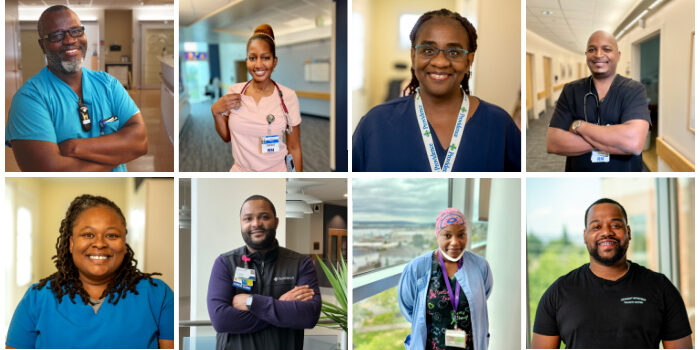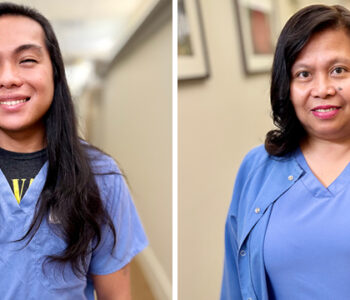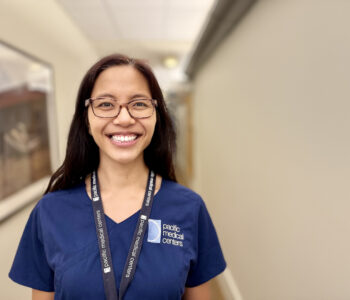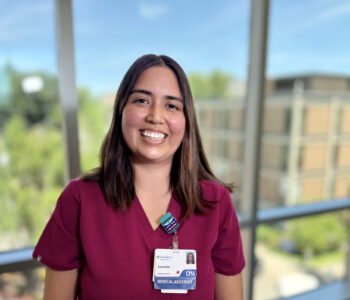 Caregiver Stories
Caregiver Stories
Black Caregiver Resource Group Profile: Shaping the future of Providence
This National Black History Month and every month, Providence recognizes that recruiting and retaining Black and minority caregivers is critical to shaping an inclusive workforce built on diversity, respect, dignity and teamwork. One of the ways we aim to foster a supportive work environment is through our Caregiver Resource Groups (CRGs). We spoke recently with Janae and Lisa, co-chairs of the Southern California Black Caregiver Resource Group (BCRG), as well as Darshon, a member of the Alaska BCRG steering committee, about how we’re working to enhance the Black caregiver experience at Providence.
Growing Black leaders from within
We believe the sky’s the limit in terms of how far caregivers can grow in their careers at Providence—and actively support caregivers interested in promotion to a leadership or management role. As Darshon in Alaska says, BCRGs “support the development of Black caregivers which in turn helps us promote, retain and recruit Black and other minority caregivers to our organization.”
Lisa, who chairs the Careers Committee within the SoCal BCRG, says, “We educate members on career development topics that they can use for years to come.” For example, members of the groups can learn things like:
- How to define their career goals
- How to connect with a formal or informal mentor
- The importance of documenting successes
- How to use available learning resources to support career goals
- How to build a resume
- How to network with career goals in mind on LinkedIn
Connecting and educating others about the Black experience
Providence BCRGs are a place for connectivity in the workplace—and sharing perspectives with caregivers and leaders not part of the Black community.
Says Janae in California, “It’s nice to have that sense of community, somewhere that you can have a safe space, somewhere that you can encourage and empower members that look like you and have similar experiences.” She says it’s a space where you find your people, connect with like-minded individuals and give back to the local community.
Darshon says the Alaska BCRG is connecting people at different points in their career as the group continues to grow. “What I like about the steering committee is that we have some who have been here 35+ years to less than 10 years and the stories shared among members prove we’ve come a long way.”
He adds that a critical piece is fostering understanding outside of the group. “We advise leadership about the lived experiences of Black caregivers as we build the framework of our initiatives around diversity, equity and inclusion.”
Supporting Black caregivers outside of work
Janae says that BCRGs aren’t just about how to excel at work—but also provide resources that support caregivers off the clock. She cites the very successful Excellence Series she and her co-chairs hosted, which covered Black excellence, financial excellence and health excellence. It included sessions with speakers who shared insights on entrepreneurship, health equity and financial literacy.
Janae says the leaders of the group are open to educating members on any topic of interest that might ease caregivers’ way—from mind, body, and spirit to finances. “You tell us what you want to hear about, and we’re going to turn that into a Lunch & Learn.”
Fostering a culture of inclusivity
Providence continues identifying ways to enhance the experience of our Black caregivers, and the experience of all caregivers at our organization. Lisa sums it up, saying, “Providence is really trying to make the culture more inclusive, and make people feel like they belong.”
Feel like you might belong with us? View all open roles.










